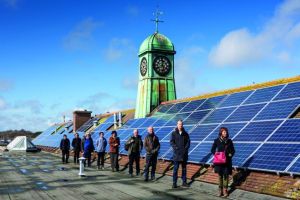Monthly archive for September 2015
Showing results 6 - 8 of 8 for the month of September, 2015.
15 Sep 2015
One of the highlights of the recent
International Permaculture Conference in London was a keynote by permaculture educator and designer
Geoff Lawton. Geoff is renowned through his website for his online videos and courses, and is perhaps best known for his greening the desert work. The second day of the conference looked at scaling up, strategies for taking permaculture to the mainstream. This was the subject of Geoff’s talk, which he has very kindly allowed me to publish in full below. In the context of our theme on fairness, his talk could be considered a meditation on what a fair food system might look like.
“Bismillahh. It is great to be here presenting in my home country, I was born Stoke-on-Trent, Staffordshire 1954, parents move to Bournemouth 1956, where went to school and grew up fishing the Stour, Avon and Hampshire Dorset coastlines, and studying the forest ecology, especially the New Forest in Hampshire and its commons. I moved to North Devon in 1974 and started surfing and winter travelling which led me to Australia in 1979 and in that first year I came across permaculture and I have become move involve every year since and now in 2015 I will be 61 this year I am pretty sure………. its a terminal infection. [Here is the video of the session in which Geoff speaks: he starts at 1:01:00].
If we looked at our planet through the eyes of an intelligent visitor from another world and assessed the earth’s biggest challenges, the most obvious would be the problems created by the human population. 99.9% activity seems to be fuelled by self interest with competitive greed, not co-operation, with exploitation of people and resources, with just a 0.1% positive patterned action facilitating productive ecosystem abundance.
Throughout our existence, the human race has been responsible for creating tremendously harmful imbalances impacting both the living and non-living systems of earth. Our planet is currently suffering unparalleled rates of species extinction and biodiversity losses. These problems are symptoms and large indications of a major evil in action. Ecosystems, on a worldwide scale, are unable to endure continuous negative human forces. Our major climactic stabilisers, are collapsing across the earth.
These life rich systems are the shock absorbers that allow points of balance to be restored after massive fluctuations in energy, such as a hurricane or some other natural catastrophe. Without them, our own existence comes into question as well. Story, ecosystems as energy storage systems, with expressions of full diversity from top predator to mass life weight diversity expressed in soil organisms, with soil creation as a consequence and indicator of energy charged capacity.
Energy being constant, as Einstein stated, as we simplify and destroy global eco-systems our climate becomes more energetic. The variations in our global climate extremes are more volatile every year, and exponentially increasing. In every region of the world we are experiencing record breaking extremes in all directions: simultaneously reaching the upper limits of one system and the barest bounds of another. The hottest, the coldest, the biggest drought, the biggest floods, the biggest winds everywhere worldwide at the same time.
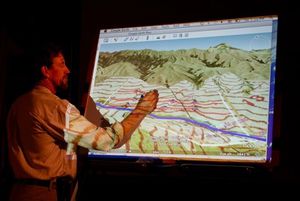
This doesn’t have to be the reality we live in, as we know the attitude, the approach, and the science which can cure all that ails us. After 25 years of designing, teaching, and consulting on every continent throughout the world, I feel the solution is very obvious. With permaculture design, we can not only impede our current negative effect, but also reverse it into a positive one with the potent potential of permaculture like an infectious global pandemic. All we have to do is hone in, and pay close attention to the natural systems.
Through our enhanced observation skills, anyone can see the very obvious cause and effect reactions in all the biological systems. Using both climatic moderation and ecosystem species richness as gauges, positive feed back loops intensify beneficial effects. These are what both people and the environment need, a massive increase in positive feedback loops. Permaculture specialises in this field, finding beneficial interactions between elements, and creating as many of these connections as possible.
The approach of permaculture design can solve all of the global challenges bearing down on our strained biosphere. Our initial action should be to stabilise our systems. Only then can we, and we absolutely without a doubt can do this, convert these systems into reliable, consistent, and permanent resources possessing true and useful value.
The problem is the solution. Every problem is a potential opportunity. It is up to us to change our perceptions.
It is up to us to allow for unlimited abundance and positivity with our vision of the emerging future we can all achieve together. First and foremost, we must engage with our current water management and access crisis. Water is essential to our life systems; we look for it on other planets because it is the chief indicator for a world’s ability to conceive and sustain complex life systems.
Personally, I have been fascinated by water all my life. I have been intensely engaged in all its aspects, from small scale harvesting systems built by hand to immense landscapes built with enormous earth moving machines. I have in-depth understanding and long-lasting expertise with aquatic dynamics and their crucial role in building life rich systems. In the extreme climates and landscapes, water is the priority in design. Clean drinking water is becoming extremely rare in the natural world and is now becoming only a manufactured product in most locations.
The World Health Organisation reports that more than 750 million people lack adequate access to clean drinking water. Diarrhoea caused by inadequate drinking water, sanitation, and hand hygiene kills an estimated 842,000 people every year globally, or approximately 2,300 people per day. Irrigation water is also in more demand all the time. Industrial agriculture is increasing the world’s dependency on irrigation technology due to its ever growing thoughtless actions without regard to the holistic integrity of natural systems.
The signs of water strain globally are the flood and drought regimes which are rising in frequency and more importantly, in high-end variability. By implementing permaculture design, and constructing productive ecosystems that are sensitive and aligned with the holistic integrity of natural systems, we can reverse this effect. To appropriately design life rich systems that harvest, pacify, and allow access to ample clean water, all while providing for our needs, is the ultimate indicator of our ability and intelligence. We have an obligation and responsibility to achieve this as an evolutionary process.
As a species, I know we’ve found the holistically designed science system capable of this feat. Permaculture is the vehicle of our evolution.
The other large-scale challenge created by industrial agriculture is soil depletion. Industrial agriculture is degrading and destroying soil fertility and physically eroding soils on a global scale at a permanent loss rate faster now than ever before in history. Soil is the core of sustainability. A sustainable system produces more energy than it consumes, and enough in surplus to maintain and replace its component parts over their lifetimes. By measuring and improving of soil quality, while creating new soil with appropriate interactions we can begin the journey towards soil abundance.
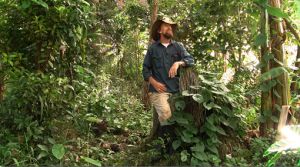
Soil is the the most complex living system in the known universe, it deserves our appreciation and respect. Agriculture in its present form does not stand the test of time. It is a very bad idea to develop and structure any system to be eternally reliant upon finite resources.
Our biggest mistake in history has been to try and provide our needs from living elements without taking the responsibility of paying serious attention to the damaging effects they have on the natural world.
Poverty is the end result of this environmental injustice. Worldwide hunger is growing and it’s not slowing down, the sad fact is … more children go hungry every day. The United Nations estimates that about 805 million people of the 7.3 billion people in the world, or one in nine, were suffering from chronic undernourishment in 2012-2014. The reason is very, very, simple. We aren’t interacting with our planet in a balanced way.
The destruction of our basic survival resources is creating a perpetual increase in global poverty. While the corporation wealth funded science and technology profit production and consumption lobby continues to promise a saviour, people are starving to death. It is not GMO, it is letting poison companies control our global food supply, it is ethical design science in action that will get us out of this mess. The definition of wealth has been manipulated, disfigured, mutilated if you will. We’ve been led astray.
We need to move the goal posts, we need to alter our aspirations. When we do this, we will all achieve true wealth by NOT only understanding, but by USING permaculture design as THE directive for positive action. We have, as a birth right, very basic requirements in life that we are all entitled to. I feel we, as an international community, we should make every possible effort to reclaim these basics in order to become truly wealthy.
The core requirements for true prosperity are;
- an abundance of clean air
- an abundance of clean water
- and an abundance of clean nutritious food.
With these fundamentals in place, we can continue on to creating an abundance of sensible passive energy designed housing with low embodied energy, thereby providing for an abundantly supportive community unified in action by permaculture ethics. This WILL create the ultimate evolution of humanity’s potential. The revolution is no longer disguised as gardening but obviously sedition and permaculture people power.
A meaningful existence fulfils us… we need to progress on from where we are… to where we want to be… this in itself is a VERY meaningful process. With the widespread adoption of permaculture design globally we will have no need for industrial agriculture in its present insensitive form. Conventional chemical as well as organic farming both lack…. sensitivity for natural patterning,….. appropriate scale,…… and beneficial positioning of interactive diversity. Industrial agriculture is inherently inefficient, obviously and inevitably unsustainable.
I have been passionately teaching people how to rapidly make soil on a small scale for many years. With specific techniques and creating local compost, it’s very feasible to design productive ecosystems to facilitate the creation of soil over large areas. Mass education is now possible so that ALL children and adults willing to learn can become completely fluent in this patterned language to a level of understanding that can be expressed in eloquence. Let’s strive towards positive solutions.
It is essential that intentional permaculture design is adopted as the core of all relevant science. With our ethics at the core as we go into action, then and only then will we engage a serious effort FOR all people. We’ll start to implement and invest in a completely global extension of true sustainability, that will repair the earth and create absolute abundance. The current crisis is actually our ultimate opportunity to evolve as a species.
We’ve been presented with the chance to learn from the transformation we HAVE to make. The path FROM the negative death and destruction economy, rooted in the production and consumption system must begin. We have a duty to the advance into the endlessly expansive economy of ecology that will produce a balanced global environment with a stable and plentiful world for all future generations. There is no limit to richness in natural living systems and the more we engage in permaculture design systems the more intricate and refined they become.
By starting with the core ethics that govern our actions, and by allowing the systems that we implement to demonstrate their evolutions… we will inevitably create a world so abundant, it will exceed the edges of our imagination. True wealth will become endlessly available to us. True wealth is achievable by design and now is the time. Our ethos of taking action is to make sure that we care for the earth, care for each other and to leave a positive legacy for future generations. A complete transformation of humanity’s action is possible.
We can grow from the most destructive species on earth, and return to our rightful position as the facilitators of the earths ecological function through permaculture design. Our common goal unifies the global community and is our true inheritance. A return to observing and learning from nature is non-negotiable, from observation, we can take those lessons and turn them into directives for action. With this ethical design framework, and its principles inspired by nature and an emphasis on low-cost solutions, we can meet our everyday needs. From Greenland to Australia, from Korea to South Africa, across the globe we can live in absolute abundance.
We can be very optimistic that this can be achieved as everything we need to know is available to us. There needs to be a global effort to redesign the systems that meet our basic needs along ecological principles, this will dramatically change our fortunes with a realistic prospect of a positive future for all. With 40 years of testing and experimentation, permaculture is ready to scale up.
Al Hamdillallah
Read more»
11 Sep 2015
While government can famously tend to be siloed, each department working in isolation from each other, at the community scale, that’s not a problem we face. Making communities more resilient is all about joining things up, making connections. As a result, we look at energy generation in a very different way to Energy Secretary Amber Rudd, for whom community energy is just a matter of generating kilowatts. Long forgotten are these words from her department’s 2014 Community Energy Strategy:
“Community-led action can produce energy, reduce energy use, manage energy demand and purchase energy. It can often tackle challenges more effectively than government alone, developing solutions to meet local needs, and involving local people. Putting communities in control of the energy they use can have wider benefits such as building stronger communities, creating local jobs, improving health and supporting local economic growth”.
There are around 5,000 community energy groups across the UK, and as well as generating what Howard Johns, author of the forthcoming book Energy Revolution calls the potential for “the wholescale transformation of the energy system”, they generate much more besides. They bring people together, create community, a sense of shared purpose, a sense of civic pride. They can create funding streams for a range of community projects that otherwise struggle for funding. Repowering London’s Energy Garden is a beautiful example of this, using solar energy to unlock new food gardens on 50 London Overground stations.
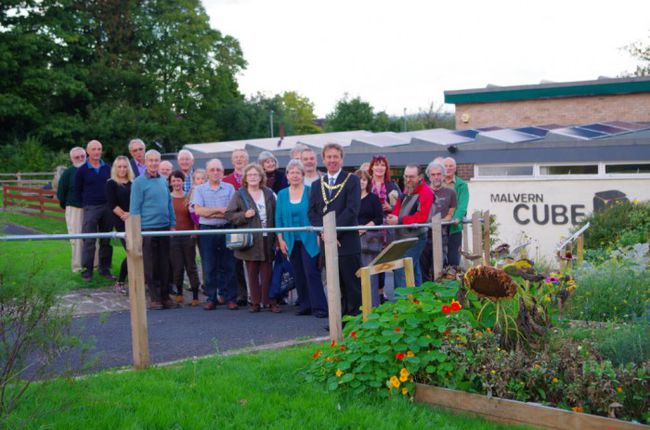
Community energy projects allow people to feel more control over what happens in their community. They create valuable partnerships of community organisations. People are able to invest in something they believe in, and they can see the world changing around them.
Community energy can also generate public health benefits. For every community-funded solar installation that Brixton Energy put in place, they also fund energy efficiency measures in the building hosting the panels, reducing fuel poverty. The World Health Organisation identify energy generation as one element of a ‘climate-friendly hospital’, the perfect way for communities to come together with local healthcare providers. Brighton & Hove Energy Services Co-operative Ltd have done amazing work in the poorest wards in Brighton working with people in fuel poverty. Getting people talking, feeling listened to, feeling part of something, all have tangible public health benefits.
According to Peter Capener of Bath & West Community Energy Co-operative, who have raised around £10 million in investment, mostly from local people, community energy “creates the conditions within which change can flourish, scale and be embedded across society”. Looking into the stories of many community energy groups, one gets a very real sense of the deeper shift from despair about the future to hope that they generate.
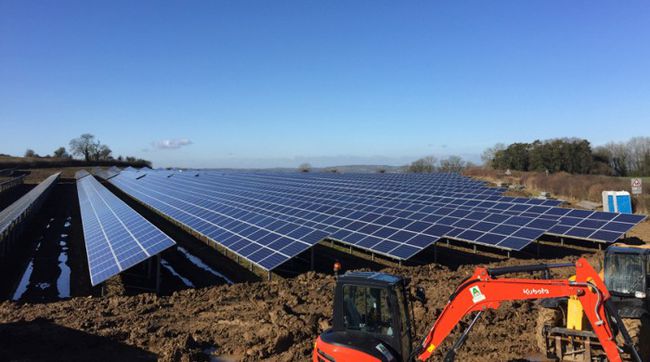
But that all now looks set to be discarded, tossed into the same waste paper basket in which the Community Energy Strategy now moulders. Rudd recently announced a review that looks set to lead to changes that could very well result in the end of community energy schemes as we know them. Having previously being quoted as saying “I want to unleash a new solar revolution”, subsidies for solar energy look likely to be slashed by up to 87% because, the thinking goes, the subsidies drive up energy bills, and so therefore need cutting. But in fact, subsidies to solar energy are tiny, only costing the average energy bill payer around £10 a year out of an average bill of £1,338. I should also mention here that, according to Oil Change International and the Overseas Development Institute, the UK government subsidise oil and gas exploration to the tune of £1.2 billion a year. And that’s in the wider context of global spending of £5.3 trillion subsidising fossil fuels, more than is spent by governments globally on healthcare.
According to Juliet Davenport, founder and CEO of Good Energy, who support many community energy projects, if Rudd’s proposals are adopted, “I think we will see a lot of these community energy projects go away, and a lot of the creativity that we’ve seen around renewables being able to be an engine for communities disappear, and that will be a real shame”. It’s more than just a shame though. It is a missed opportunity of historic proportions. Rather than the one-off payment of £100,000 the government are promising for every well fracked near on our doorsteps, the benefits of investment in community energy, generated year after year, create a self-perpetuating virtuous circle that can spin off in multiple, unimaginable and unpredictable directions.
Failing to recognise that the community energy sector is distinctly different from the commercial sector represents a spectacular failure of the imagination. Community energy is already demonstrating its potential to unlock community engagement, community investment and local economic regeneration in a dynamic way. It’s the golden thread that can run through community food projects, reskilling initiatives, local enterprise creation, public health, and so much more. If it really can’t be funded from energy bills, suggests Davenport, perhaps community energy should be supported from other budgets. For example, community renewables could be funded through local economic regeneration funding, through funds for enterprise creation, or even through public health budgets.
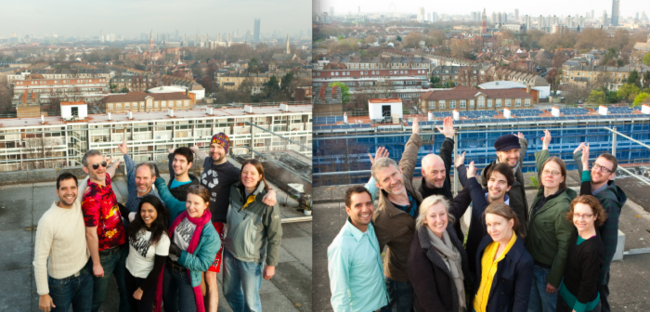
While this government has given communities the Right to Bid, the Right to Buy and the Right to Build, they are about to take away their Right to Generate. While it is motivated by concerns about the impacts on bill payers, the government appears to be missing the crucial point that the impacts of climate change will be far worse than £10 a year on energy bills. Indeed, in the context of community energy, £10 a week for the kinds of benefits it can bring about starts to look like a bargain.
Chris Rowland of Ouse Valley Energy Services Company in Lewes, told me of a government-funded peer-mentoring scheme it ran for 10 neighbouring communities. One, Hassocks, Hurstpierpoint, Keymer and Ditchling Transition, started ‘HKD Energy’. They installed 307 solar panels on a local school funded by £100,500 in shares from local people, with 83% of the investors living within a 4 mile radius of the school. Filled with confidence and enthusiasm, and the sheer buzz that comes from enabling your community to do something so remarkable, they were actively looking for new sites, new buildings, for future projects. Now, like thousands of other community groups, that passion, that commitment, that spirit, risks being brushed aside, all that dynamism dissipated.
Community energy will no doubt adapt, find different models, continue to be creative and inventive. But this is an entirely unnecessary body blow. In December, David Cameron heads to COP21 in Paris, credibility in tatters. Yet applying some creativity and a healthy dose of silo-busting, this government might see that community energy offers a remarkable opportunity to deliver much of what it wants to see: entrepreneurship; local empowerment; economic self-reliance; public health; training, apprenticeships and much more. Community energy represents an opportunity too good to miss. I’ll leave the last word to Brixton Energy’s Agamemnon Otero, who once told me:
“We’re not wedded to solar panels, or Combined Heat and Power, or whatever. We’re wedded to wellbeing. The only way people actually ever believe in themselves and get involved is when they’re allowed to be involved. As soon as you take responsibility for something and you give and you take back and you give and you take back, you develop self will and self belief, and that’s what’s been taken away from people. Again and again I see that the best way to get people involved is to allow them to take back part of their own autonomy. It’s like you distil a sourdough culture into the people and then they rise! Power to for and by the people”.
What can you do about this? You could write to your MP, sign the 38 Degrees petition, or share your thoughts, and make some of the above points, at DECC’s Feed-In Tarriff review consultation page, or sign their petition, where 100,000 signatories triggers a government response.
Rob Hopkins
Read more»
8 Sep 2015
Juliet Davenport is the founder and CEO of Good Energy, who are the main sponsors of the 2015 Transition Network International Conference. As part of our current theme on ‘Fairness’, we spoke to Juliet and started by asking her what, for her, does a fair energy system look like? Here’s the audio, followed by a transcript:
“I suppose a vision of the future where we see a much fairer system is where individuals are in better control of their energy and I think that on many levels: one, that individuals can be part of generating energy themselves. They can either do that in their own homes or as part of community action. Businesses can do the same, businesses can generate their own power.
The power isn’t concentrated in one place, unlike the energy market we’ve seen for the last 30-40 years where an essentially centralised system has been slightly dictated to by the way the market has been structured, and all those large decisions about who makes margins on the central system all comes through as a big regulative central body, and actually the individuals who buy power on the ends don’t have any influence on that whatsoever. My picture of a fairer world is actually individuals can become part of it, rather than excluded from the energy market.
What’s the role of communities and community energy? You’re one of the biggest companies that supports community energy. Why does it matter?
Communities have various different roles. Different communities have different strengths so you can’t put them all in a box. We see the strength of communities in that people tend to trust their neighbours rather than trusting energy companies about energy. There was some brilliant work done by a couple of big community groups and volunteer group on energy efficiency. People went door to door talking to their neighbours about things they’ve done in their own homes, and that had huge cut through in the uptake of energy efficiency and the thoughtfulness about energy efficiency. The same on renewables: when we work as individuals we tend to like to hear other people’s stories about what they’ve done in terms of energy.
So if I hear that my neighbour’s done his solar panels, which is exactly what I heard and I hadn’t got round to doing it for ages, I then got on and did mine. In communities we give each other confidence to do things on an individual basis but also we can come together at a community level and do bigger, more engaged pieces around our schools, around even bigger potential renewable projects. Community has this huge long term influence on our usage and development of renewables and energy more widely, and we quite often underestimate the huge influence it can have.
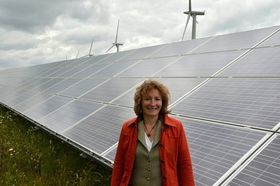
We mentioned before there the recent announcements that the government are considering up to 87% cuts in subsidies for solar. What’s that all about?
It’s a really interesting position. Actually, what we’ve seen is the success of renewables particularly over the last 2-3 years. Renewables have delivered 21% of our electricity requirements in the first quarter of this year and what we’re beginning to see now is that’s beginning to have a wider impact on the energy market as a whole. What that means is that you have different voices in there basically saying “you’re reducing our margins, this is happening”, so we’re beginning to see a kickback, I think. That’s twofold, one is that the Treasury is basically saying that we can’t add any more to people’s bills to support renewables.
Our argument against that is actually renewables are reducing the cost of energy bills as well, so you need to take the two into balance, and actually longer term, low carbon could mean low cost as well. You have to take a longer term view. What we’re seeing is a very short term view of the fact that they put a budget in place between the Department of Energy and Climate Change and the Treasury, that budget looks like it’s going to be overspent, but actually the budget was false in the first place and our concern is we’ve not got enough voices in there actually telling people about the benefits of renewables that we will really see coming through, reducing everyone’s bills in the UK.
We are now seeing some very ambitious community energy projects like Bath & West Community Energy who’ve raised millions of pounds in community investment. Thousands of community energy projects, some of whom are attracting some very serious investment and then using that not just to do energy but also to do all kinds of interesting things. Many of those would be Transition groups. If this goes through, what impact will it have on those projects, do you think?
I think we’ll see a lot of those projects go away and the creativity we’ve seen around renewables being able to be an engine for communities will disappear, and that will be a real shame. This is one of the points that we need to work with government on, is to potentially protect the community element whether there is a way forward where communities can still, particularly if they’re shown to be giving proper community, local community benefits, then actually they should be supported and maybe supported from budgets other than the Levy Control Framework.
One of the things that’s been interesting with the Labour Party leadership election has been, going back to the question of fairness, this idea that if you have a load of policies that are around fairness and equality, then you become unelectable, one of the things that has been levelled at Jeremy Corbyn. I wonder if you have a sense of whether stuff that really makes a fairer society or a more equitable society in terms of energy and other things is really electable, something that people really want.
That’s a really interesting question and my honest answer is I don’t know because I have never tried to elect off the back of it. There is a passionate feeling about energy amongst a lot of consumers. Not all consumers obviously, because we already know that up to 50-60% of the market has never switched. But everybody else is very concerned about whether they’re being ripped off, are they getting a fair deal from their energy supplier, what are the options for them going forwards.
There’s a reasonable percentage of customers who think getting a fair deal is important. We saw in the election that although Labour didn’t bring it forward, that policy that they talked about in terms of trying to bring fairness into the energy market was a very popular piece for them to discuss in the initial days. What we saw was that it was then overtaken by other areas. Actually that whole piece around fairness on energy bills was very powerful and it got a lot of press coverage. So I would question that. I think presented in the right way, it is a really important point.
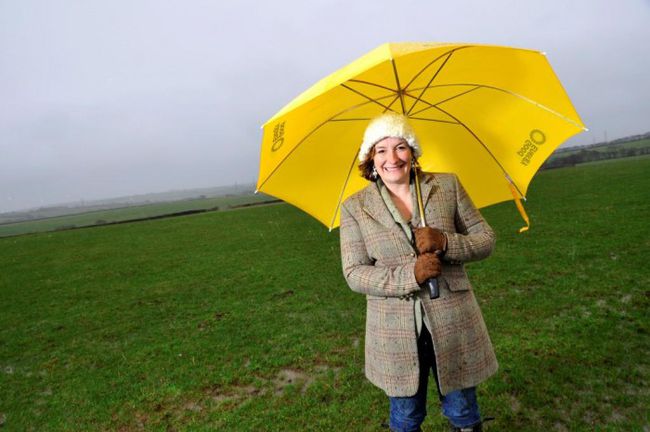
What does the recent competition market review tell us about the fairness or unfairness of having the ‘big 6’ model that we currently have in the UK?
What’s really interesting about that is that the CMA (Competition Market Authority) did a review and they looked across the whole market to see whether it was working properly or not. One of the key findings was that those customers who have never switched, those people who have stayed with their energy supplier ever since they were made back in the late 90s, essentially are being treated unfairly. So they aren’t being given the best deals, and although those customers probably expect that those companies are looking after them, they’re really not looking after them. That’s a real shame actually and continues to undermine trust in the energy market.
I suppose from our point of view, the more individuals who can get involved and take control of the energy market, i.e. become a producer or start to change their behaviour or work with communities to work with overall community behaviour, the better. I had a lovely story the other day where we talked to this lovely lady about what she does with her energy bills. Actually she invites her next door neighbour over for a cup of tea and they compare energy bills. That’s not something that I would have guessed that anybody would want to do, but that’s the kind of thing we want to see happening, people being empowered on an individual and community level to discuss energy, to take it into their own hands and do something about it.
Read more»
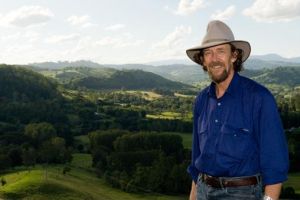
 This doesn’t have to be the reality we live in, as we know the attitude, the approach, and the science which can cure all that ails us. After 25 years of designing, teaching, and consulting on every continent throughout the world, I feel the solution is very obvious. With permaculture design, we can not only impede our current negative effect, but also reverse it into a positive one with the potent potential of permaculture like an infectious global pandemic. All we have to do is hone in, and pay close attention to the natural systems.
This doesn’t have to be the reality we live in, as we know the attitude, the approach, and the science which can cure all that ails us. After 25 years of designing, teaching, and consulting on every continent throughout the world, I feel the solution is very obvious. With permaculture design, we can not only impede our current negative effect, but also reverse it into a positive one with the potent potential of permaculture like an infectious global pandemic. All we have to do is hone in, and pay close attention to the natural systems. Soil is the the most complex living system in the known universe, it deserves our appreciation and respect. Agriculture in its present form does not stand the test of time. It is a very bad idea to develop and structure any system to be eternally reliant upon finite resources.
Soil is the the most complex living system in the known universe, it deserves our appreciation and respect. Agriculture in its present form does not stand the test of time. It is a very bad idea to develop and structure any system to be eternally reliant upon finite resources. 